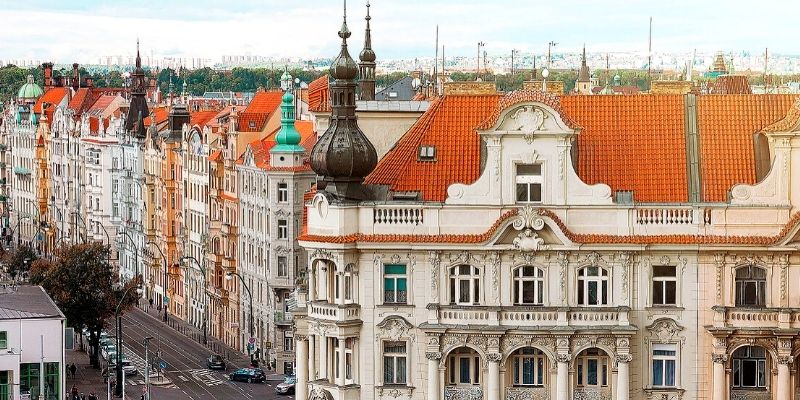The number of Airbnbs in Prague has halved
Nearly seven thousand apartments with a total of 18,732 beds were offered last July by landlords in Prague. That’s half the apartments compared to July 2019.
It emerges from the analysis published by the Institute of Planning and Development (IPR).
It’s no surprise that the majority of beds offered on Airbnb are located primarily in and around the city center. The reasons for this are obvious – it is mainly used by tourists who prefer accommodation within walking distance of tourist destinations.
The largest selection offers:
- New Town (1,696 units)
- Old town (957)
- Vinohrady (726)
- Zizkov (616)
- Smichov (459).
Another surprising finding is that there is a drastic reduction in tourism. Many short-term leases on Airbnb, usually used by tourists, have switched to long-term leases since 2018.
“The owners of these houses in Prague reacted to this and decided to switch from short-term to long-term rental.”
“Currently, the rent is at a similar level to before the pandemic and we can expect further growth,” said Peter Višňovský of real estate agency Lexxus. According to him, only a minority of owners decided to completely abandon the market and sell the property.
Housing prices are rising in the city
Compared to 2018, last year reduced the overall share of apartments and houses in the Prague building stock. While in 2018 this supply is occupied 1.4% of the housing stock in 2019 rose to 1.6%, in 2020 came to 1.4%. Last year then brought a further reduction in the proportion of apartments and houses on Airbnb, which in July fell to 0.7%.
The cause of this condition is again travel restrictions. A number of apartments and houses remained unused and, as the analysis shows, almost half of them from Airbnb listings were removed completely.
According to the analysis, the recovery of tourism should return, therefore the return of short-term accommodation, especially in the city center.
New laws introduced mean this would allow the city to regulate housing supply. So far, the authorities have succeeded in imposing an obligation on all short-term accommodation providers to pay a tourist tax, online platforms are also obliged to commercial authorities to share information about residents.
However, changing laws allows governments to regulate directly. For example, the number of days in the year that the property can provide tourists.
“We asked parliamentarians to amend the Small Business Act to limit the number of nights per year or the maximum number of people.” The regulations will make it fairer to tenants of all accommodation types.


Comments are closed.